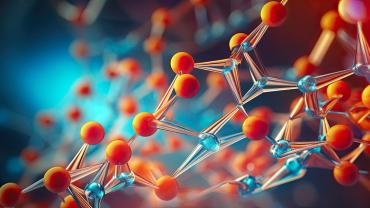Dietary Intake of Taurine and Glycine
Maintaining our health as we age becomes increasingly important, and nutrition plays a crucial role. Among the many nutrients that support healthy aging, taurine and glycine stand out due to their numerous synergistic bodily functions that support overall health. Although our bodies can produce these amino acids endogenously, the natural aging process can lead to a decline in the synthesis of taurine and glycine. Additionally, dietary intake of taurine and glycine may not always meet our body's needs, especially for individuals with low protein intake, vegetarians, or vegans. Thus, supplementation may be supportive for certain individuals to support healthy aging.
Taurine, a sulfur-containing, conditionally essential amino acid, is abundant in the brain and skeletal and cardiac muscles. It is found almost exclusively in animal-based foods such as meat, seafood, fish, and milk (it has been discovered that certain types of seaweed may be an exception). Glycine, the simplest and smallest amino acid, has a hydrogen atom side chain and is also considered conditionally essential. Glycine can be found in various animal- and plant-based protein sources. Epidemiological studies reveal that a low dietary intake of taurine is associated with higher cardiovascular risks, while recent studies suggest that glycine levels may be reduced in adults with obesity, morbid obesity, type 2 diabetes, and non‑alcoholic fatty liver disease.
Taurine’s Role in Healthy Aging
Taurine supports healthy aging through various ways:
- Metabolic Health: Taurine promotes normal insulin metabolism, healthy blood sugar metabolism, and healthy lipid metabolism. A worldwide epidemiological WHO‑CARDIAC study surveyed 3,960 individuals from 41 populations. It concluded that the dietary intake of taurine had a significantly inverse relationship to the values of body mass index (BMI), blood pressure, total cholesterol, and atherogenic index – all of which are risk factors in metabolic conditions.
- Mitochondrial Function: It supports mitochondrial health, essential for energy production and cellular function.
- Cognitive Health: Concentrated in the brain, taurine acts as a neurotransmitter or neuromodulator, influencing mood, behavior, memory, and learning. It may help to mitigate excitotoxicity by modulating neurotransmission and calcium homeostasis.
- Cardiovascular Health: Taurine supports normal blood pressure by regulating vascular relaxation and promoting nitric oxide (NO) bioavailability.
- Antioxidant Status and Inflammatory Responses: Taurine mitigates oxidative and nitrosative stress, scavenges free radicals and reactive oxygen species (ROS), helps mitigate lipid peroxidation, and supports the antioxidant activity of enzymes like superoxide dismutase and glutathione peroxidase. It also helps to mitigate the production of inflammatory mediators like tumor necrosis factor-alpha, prostaglandin E2, and interleukin-6, and reduce the formation of advanced glycation end-products (AGEs).
- Other Important Roles: Taurine supports healthy bile acid conjugation (supporting fat digestion and absorption), detoxification, and osmoregulation.
Glycine’s Role in Healthy Aging
Glycine is essential for various functions to support overall health:
- Precursor to Important Metabolites: Glycine is necessary for synthesizing creatine, glutathione, heme, purines, porphyrins, and collagen.
- Antioxidant Status and Inflammatory Responses: Glycine may promote healthy inflammatory responses during aging by helping to combat “inflammaging.” As a precursor to glutathione, glycine helps attenuate the adverse effects of oxidative stress. Endogenous glutathione synthesis declines with age, and glycine supplementation has been shown to support healthy glutathione status.
- Neurotransmitter Function and Healthy Sleep Quality: Glycine acts as an inhibitory neurotransmitter and a co-agonist for N-methyl-D-aspartate (NMDA) receptors, supporting sleep quality and potentially benefiting mood and physiological stress responses. In a cross‑over trial, volunteers who took 3 g of glycine before bedtime experienced significantly improved “liveliness and peppiness”, “clear‑headedness”, and reduced fatigue symptoms the following morning. Furthermore, a review demonstrated that 9 g/day of glycine supplementation did not induce daytime drowsiness.
- Musculoskeletal Health: Glycine promotes collagen synthesis, which is essential for musculoskeletal health. Glycine has been shown in vitro and clinically to support healthy tendon recovery and promote cartilage regeneration for individuals with certain conditions, such as Achilles tendinopathy or osteoarthritis.
- Other Important Roles: Glycine supports mitochondrial health. Similar to taurine, glycine also promotes the conjugation of bile salts and the digestion and absorption of fats and fat‑soluble nutrients.
The Synergy of Taurine and Glycine
Combining taurine and glycine can offer synergistic benefits for healthy aging. Both amino acids support antioxidant status, mitigate oxidative stress, and promote overall cellular health. Their roles in normal neurotransmitter function and cognitive health complement each other, potentially supporting healthy sleep hygiene, stress responses, and balanced mood. Additionally, their combined benefits on cardiovascular and metabolic health can provide a more comprehensive approach to maintaining health as we age. While taurine and glycine individually offer significant health benefits, their combination can provide a powerful strategy to support healthy aging.
Learn more about the role of taurine and glycine in healthy aging:
Unlock the Power of Taurine for Metabolic Health
Taurine: Promoting Healthy Aging and Menopausal Comfort
Taurine’s Impact on Stress and Mental Health
The Digestive Benefits of Glycine
By Danielle Moyer Male, MS, CNS, LDN
